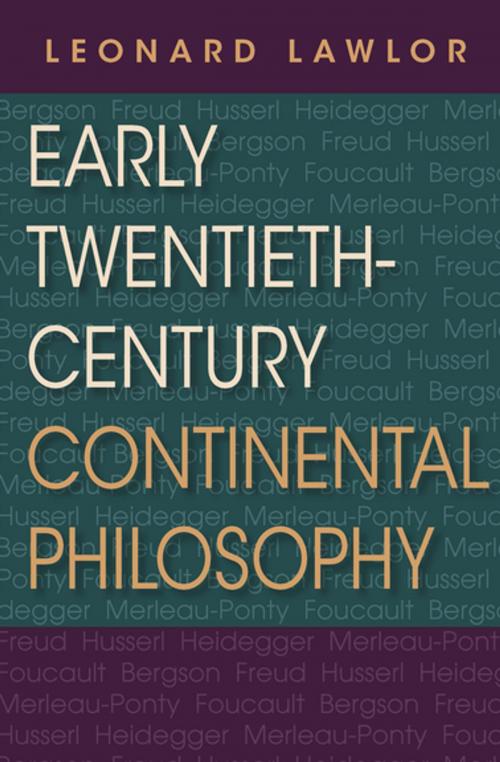Early Twentieth-Century Continental Philosophy
Nonfiction, Religion & Spirituality, Philosophy, Phenomenology, Reference, Metaphysics| Author: | Leonard Lawlor | ISBN: | 9780253005168 |
| Publisher: | Indiana University Press | Publication: | December 1, 2011 |
| Imprint: | Indiana University Press | Language: | English |
| Author: | Leonard Lawlor |
| ISBN: | 9780253005168 |
| Publisher: | Indiana University Press |
| Publication: | December 1, 2011 |
| Imprint: | Indiana University Press |
| Language: | English |
“[A]n outstanding book that will serve as a fine supplement (and guide) to important primary texts in early twentieth-century continental philosophy” (Notre Dame Philosophical Reviews).
Early Twentieth-Century Continental Philosophy offers a lucid and engaging introduction to the major works of French and German philosophy in the first half of the century. Leonard Lawlor takes as his starting point the original publication of Bergson’s Introduction to Metaphysics in 1903, and his endpoint as the original publication Foucault’s The Thought of the Outside in 1966.
Lawlor interprets key texts by major figures in the continental tradition, such as Bergson and Foucault, as well as Freud, Heidegger, Husserl, and Merleau-Ponty. Taken together, his assessment of these figures illustrates the major theoretical trends of the time―immanence, difference, multiplicity, and the overcoming of metaphysics.
“[A]n outstanding book that will serve as a fine supplement (and guide) to important primary texts in early twentieth-century continental philosophy” (Notre Dame Philosophical Reviews).
Early Twentieth-Century Continental Philosophy offers a lucid and engaging introduction to the major works of French and German philosophy in the first half of the century. Leonard Lawlor takes as his starting point the original publication of Bergson’s Introduction to Metaphysics in 1903, and his endpoint as the original publication Foucault’s The Thought of the Outside in 1966.
Lawlor interprets key texts by major figures in the continental tradition, such as Bergson and Foucault, as well as Freud, Heidegger, Husserl, and Merleau-Ponty. Taken together, his assessment of these figures illustrates the major theoretical trends of the time―immanence, difference, multiplicity, and the overcoming of metaphysics.















